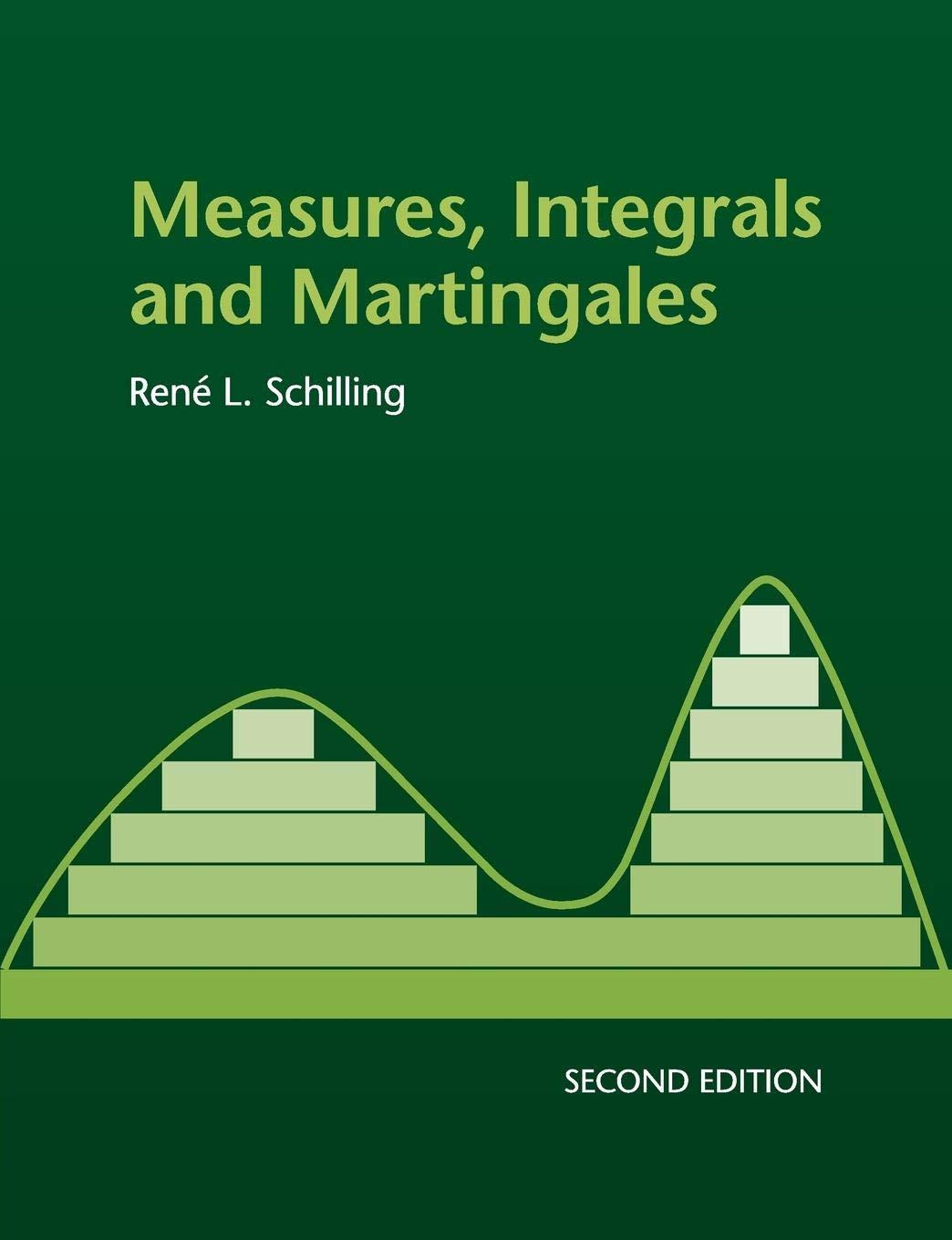Independence (2). Let ((Omega, mathscr{A}, P)) be a probability space and assume that the (sigma)-algebras (mathscr{B}, mathscr{C}
Question:
Independence (2). Let \((\Omega, \mathscr{A}, P)\) be a probability space and assume that the \(\sigma\)-algebras \(\mathscr{B}, \mathscr{C} \subset \mathscr{A}\) are independent (see Problem 5.11). Show that \(u \in \mathcal{M}^{+}(\mathscr{B})\) and \(w \in \mathcal{M}^{+}(\mathscr{C})\) satisfy
\[\int u w d P=\int u d P \cdot \int w d P\]
and that for \(u \in \mathcal{M}(\mathscr{B})\) and \(w \in \mathcal{M}(\mathscr{C})\)
\[u w \in \mathcal{L}^{1}(\mathscr{A}) \Longleftrightarrow u \in \mathcal{L}^{1}(\mathscr{B}) \quad \text { and } \quad w \in \mathcal{L}^{1}(\mathscr{C})\]
Find an example proving that this fails if \(\mathscr{B}\) and \(\mathscr{C}\) are not independent.
[start with simple functions and use Beppo Levi's theorem.]
Data from problem 5.11

Step by Step Answer:






